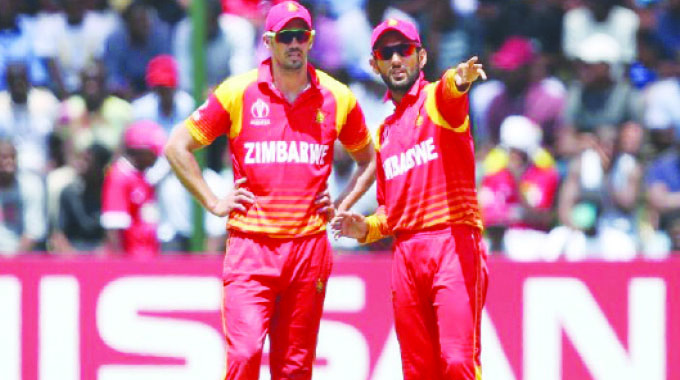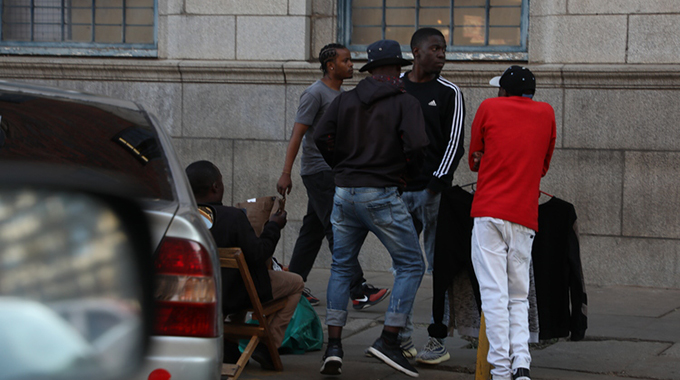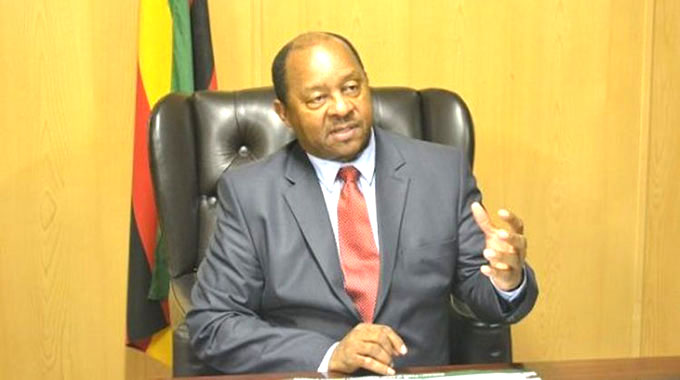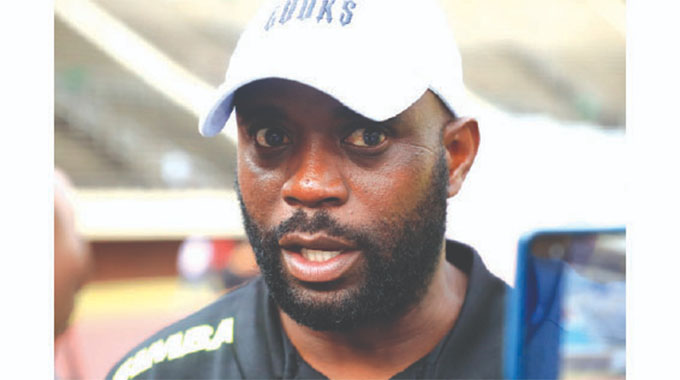A decade after the English debacle, Zim cricket flies into turbulence again

WHEN Zimbabwe’s Chevrons were forced out of the 2009 ICC Twenty20 Cricket World Cup, after the British Government refused to grant them visas to enter England, it appeared this was as bad as things possibly go in a game that has always been stalked by political ghosts.
However, exactly a decade later, the country’s second biggest sporting discipline finds itself at the crossroads again.
The ICC board voted, at their annual meeting in London on Thursday, to suspend Zimbabwe’s membership, freeze funding and stop any international engagements by the country’s national teams.
It’s the latest boardroom chapter for a game that was hit by a World Cup protest, ‘’mourning the death of democracy,’’ in this country in 2003.
Some local opposition politicians hijacked that process, and forced England not to fly to Harare, to fulfill their fixture in that tournament with the team, and the country by extension, being turned into a punching bag in the British House of Commons.
Below, we give a timeline of the political battles that have been part of domestic cricket:
August 2001: England’s planned tour of Zimbabwe is thrown into doubt and Labour MP Gareth Thomas says the tour must be cancelled after some white-owned farms in the country are repossessed during the land distribution exercise.
January 14, 2003: The England and Wales Cricket Board announce at Lord’s that England’s World Cup game in Zimbabwe will go ahead, despite concerns raised by their politicians, with the press conference being delayed for about three hours by protestors who stormed the building.
February 12, 2003: The ECB pull England out of their proposed World Cup game with Zimbabwe, citing fears over players’ safety, but their coach Duncan Fletcher soon reveals that some Zimbabwean opposition politicians had sneaked into their Cape Town hotel to persuade them not to proceed with the match.
March 10, 2003: Andy Flower and Henry Olonga stage the black armband protest, at Harare Sports Club, before the World Cup match against Namibia, saying they were ‘’mourning the death of democracy’’ in Zimbabwe. David Coltart, a senior opposition politician in Zimbabwe, later reveals he helped draft the statement and told the players to wear the black armbands.
Sept 26, 2003: Lord MacLaurin, chairman of England national team sponsors, Vodafone, urges the ECB to scrap the tour to Zimbabwe, claiming it would damage the image of the England team and his company.
January 23, 2004: In a letter to the ECB, British Foreign Secretary Jack Straw claims the situation in Zimbabwe ‘’has worsened,’’ since they refused to fulfill their World Cup game in Harare, but ECB chief executive Tim Lamb says the letter is “tantamount to an instruction” to cancel the trip.
January 21, 2004: Des Wilson, chairman of the ECB’s corporate affairs committee, submits framework document which suggests moral issues should be taken into account when deciding whether tours should take place.
April 2004: Thirteen Zimbabwe cricket team players, all of them white, release a statement airing their concerns about the state of cricket in the country after Heath Steak is dismissed as the captain and a rebellion splits the team.
July 2005: A New Zealand government motion, calling on New Zealand Cricket to cancel the tour to Zimbabwe and asking the ICC to stop all international tours to Zimbabwe is passed 110 votes to 10.
August 2005: Two British politicians write to the ICC requesting that Zimbabwe be kicked out of international cricket claiming there were human rights abuses in the country.
January 2006: ZC choose to withdraw the national team from Test cricket for, at least a year, but it wasn’t until 2011 that Zimbabwe played a Test match.
May 2007: Andy Flower calls on sporting authorities to impose more sanctions against Zimbabwe.
June 10, 2008: England batsman Andrew Strauss says the team may consider boycotting matches against Zimbabwe if President Mugabe remains in power.
June 25, 2008: The ECB cancel Zimbabwe’s tour of England in 2009 and announce that ‘’all bilateral arrangements are suspended with Zimbabwe cricket with immediate effect.’’
June 28, 2008: Zimbabwe Cricket chief, Ozias Bvute, questions why there is such an obsession to hit local cricket with sanctions when other sporting disciplines, such as football, remain unaffected with the Warriors taking part in World Cup qualifiers.
July 2, 2008: The ICC meets in Dubai to vote whether Zimbabwe should be suspended from the ICC but the country gets massive backing from India, Sri Lanka and Pakistan and the motion is defeated.
July 4, 2008: Zimbabwe withdraw from the World Twenty20, ensuring the competition will take place in England in 2009, but they are not suspended by the ICC.
June 2008: The British government tells the ECB the Chevrons will not be allowed into the country for the ICC World Twenty20 Cup 2009 forcing ZC to pull the team out of the tourney but retaining their status as a Full Member of the ICC.
June 2017: With the support of India, Pakistan and Sri Lanka, Zimbabwe keep its Full Membership status at an ICC meeting despite moves from a bloc for its suspension.
July, 18, 2019: The ICC board unanimously vote to suspend Zimbabwe pending a review of that decision in October – Sports Reporter/Agencies










Comments